Blog
How to Care for Elderly Feet
 Practicing proper foot care is often overlooked, and this can be particularly true for the population of the elderly. Trimming the nails correctly is essential in preventing infections that may occur, especially in diabetic patients. Additionally, developing ingrown toenails, bunions, or warts may be common among the elderly who are not able to take care of their feet correctly. Proper circulation is vital to the lower extremities, and this may be accomplished by engaging in foot massages, in addition to elevating the feet and soaking them in warm water. Choosing the correct shoes to wear will also help in maintaining proper foot care, and selecting breathable materials will help in preventing fungus from occurring. Please consider scheduling a consultation with a podiatrist if you have questions about how to care for elderly feet.
Practicing proper foot care is often overlooked, and this can be particularly true for the population of the elderly. Trimming the nails correctly is essential in preventing infections that may occur, especially in diabetic patients. Additionally, developing ingrown toenails, bunions, or warts may be common among the elderly who are not able to take care of their feet correctly. Proper circulation is vital to the lower extremities, and this may be accomplished by engaging in foot massages, in addition to elevating the feet and soaking them in warm water. Choosing the correct shoes to wear will also help in maintaining proper foot care, and selecting breathable materials will help in preventing fungus from occurring. Please consider scheduling a consultation with a podiatrist if you have questions about how to care for elderly feet.
Proper foot care is something many older adults forget to consider. If you have any concerns about your feet and ankles, contact Dr. Kevin Davis from Davis Foot & Ankle Centers. Our doctor can provide the care you need to keep you pain-free and on your feet.
The Elderly and Their Feet
As we age we start to notice many changes in our body, but the elder population may not notice them right away. Medical conditions may prevent the elderly to take notice of their foot health right away. Poor vision is a lead contributor to not taking action for the elderly.
Common Conditions
- Neuropathy – can reduce feeling in the feet and can hide many life-threatening medical conditions.
- Reduced flexibility – prevents the ability of proper toenail trimming, and foot cleaning. If left untreated, it may lead to further medical issues.
- Foot sores – amongst the older population can be serious before they are discovered. Some of the problematic conditions they may face are:
- Gouging toenails affecting nearby toe
- Shoes that don’t fit properly
- Pressure sores
- Loss of circulation in legs & feet
- Edema & swelling of feet and ankles
Susceptible Infections
Diabetes and poor circulation can cause general loss of sensitivity over the years, turning a simple cut into a serious issue.
If you have any questions please feel free to contact our office located in Springfield, TN . We offer the newest diagnostic and treatment technologies for all your foot and ankle needs.
How to Prevent Running Injuries From Occurring
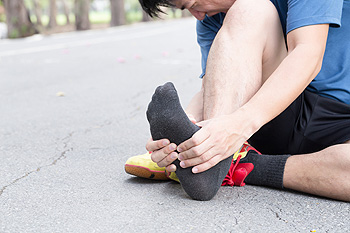 Many joggers are acutely aware of how incurring an injury can hinder running activities. Achilles tendinitis is a common injury that is felt by runners who increase the miles they run in a short amount of time. The Achilles tendon is considered to be the longest tendon in the body and it connects the heel bone to the calf. Symptoms of this includes severe pain and tenderness at the back of the heel, and the pain may extend to the calf. This may be prevented by strengthening the calf muscle which can be accomplished by standing on a step and then alternating lowering the heels until a gentle stretch is felt. Additionally, shin splints can be a common injury and can produce considerable pain and soreness. This discomfort can often be felt from the shin to the arch of the foot. Wearing the correct shoes may aid in preventing this condition in addition to strengthening the foot by performing toe raises while holding dumbbells. It’s important to speak with a podiatrist for additional information on how to protect the feet from running injuries.
Many joggers are acutely aware of how incurring an injury can hinder running activities. Achilles tendinitis is a common injury that is felt by runners who increase the miles they run in a short amount of time. The Achilles tendon is considered to be the longest tendon in the body and it connects the heel bone to the calf. Symptoms of this includes severe pain and tenderness at the back of the heel, and the pain may extend to the calf. This may be prevented by strengthening the calf muscle which can be accomplished by standing on a step and then alternating lowering the heels until a gentle stretch is felt. Additionally, shin splints can be a common injury and can produce considerable pain and soreness. This discomfort can often be felt from the shin to the arch of the foot. Wearing the correct shoes may aid in preventing this condition in addition to strengthening the foot by performing toe raises while holding dumbbells. It’s important to speak with a podiatrist for additional information on how to protect the feet from running injuries.
All runners should take extra precaution when trying to avoid injury. If you have any concerns about your feet, contact Dr. Kevin Davis of Davis Foot & Ankle Centers. Our doctor will treat your foot and ankle needs.
How to Prevent Running Injuries
There are a lot of mistakes a runner can make prior to a workout that can induce injury. A lot of athletes tend to overstretch before running, instead of saving those workouts for a post-run routine. Deep lunges and hand-to-toe hamstring pulls should be performed after a workout instead of during a warmup. Another common mistake is jumping into an intense routine before your body is physically prepared for it. You should try to ease your way into long-distance running instead of forcing yourself to rush into it.
More Tips for Preventing Injury
- Incorporate Strength Training into Workouts - This will help improve the body’s overall athleticism
- Improve and Maintain Your Flexibility – Stretching everyday will help improve overall performance
- “Warm Up” Before Running and “Cool Down” Afterward – A warm up of 5-10 minutes helps get rid of lactic acid in the muscles and prevents delayed muscle soreness
- Cross-Training is Crucial
- Wear Proper Running Shoes
- Have a Formal Gait Analysis – Poor biomechanics can easily cause injury
If you have any questions, please feel free to contact our office located in Springfield, TN . We offer the newest diagnostic and treatment technologies for all your foot care needs.
Howie Kendrick Tears Achilles Tendon
 Washington Nationals infielder Howie Kendrick recently tore his Achilles tendon in the first game of a doubleheader against the Los Angeles Dodgers. Kendrick was seen walking on crutches while wearing a walking boot in the Nationals’ clubhouse after the game. This is expected to be a season-ending injury for Kendrick and he states, “I really knew there was something wrong with it because I couldn't control my heel at all, so that's when I knew it was probably my Achilles.” He was immediately placed on the 10-day disabled list and was replaced on the roster by right-hander Jefry Rodriguez from the Nationals’ Double-A affiliate in Harrisburg.
Washington Nationals infielder Howie Kendrick recently tore his Achilles tendon in the first game of a doubleheader against the Los Angeles Dodgers. Kendrick was seen walking on crutches while wearing a walking boot in the Nationals’ clubhouse after the game. This is expected to be a season-ending injury for Kendrick and he states, “I really knew there was something wrong with it because I couldn't control my heel at all, so that's when I knew it was probably my Achilles.” He was immediately placed on the 10-day disabled list and was replaced on the roster by right-hander Jefry Rodriguez from the Nationals’ Double-A affiliate in Harrisburg.
Achilles tendon injuries need immediate attention to avoid future complications. If you have any concerns, contact Dr. Kevin Davis of Davis Foot & Ankle Centers. Our doctor can provide the care you need to keep you pain-free and on your feet.
What Is the Achilles Tendon?
The Achilles tendon is a tendon that connects the lower leg muscles and calf to the heel of the foot. It is the strongest tendon in the human body and is essential for making movement possible. Because this tendon is such an integral part of the body, any injuries to it can create immense difficulties and should immediately be presented to a doctor.
What Are the Symptoms of an Achilles Tendon Injury?
There are various types of injuries that can affect the Achilles tendon. The two most common injuries are Achilles tendinitis and ruptures of the tendon.
Achilles Tendinitis Symptoms
- Inflammation
- Dull to severe pain
- Increased blood flow to the tendon
- Thickening of the tendon
Rupture Symptoms
- Extreme pain and swelling in the foot
- Total immobility
Treatment and Prevention
Achilles tendon injuries are diagnosed by a thorough physical evaluation, which can include an MRI. Treatment involves rest, physical therapy, and in some cases, surgery. However, various preventative measures can be taken to avoid these injuries, such as:
- Thorough stretching of the tendon before and after exercise
- Strengthening exercises like calf raises, squats, leg curls, leg extensions, leg raises, lunges, and leg presses
If you have any questions please feel free to contact our office located in Springfield, TN . We offer the newest diagnostic tools and technology to treat your foot and ankle needs.
What is Gout?
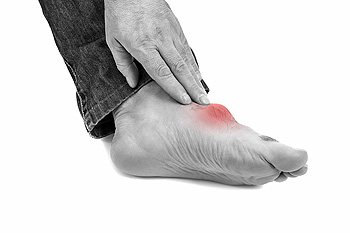 Gout is a form of arthritis, and there are several causes for this condition. If an excess amount of alcohol is frequently ingested, in addition to being overweight or having a predisposed inherited gene, gout may become a painful ailment to contend with. Food containing a large amount of purines, which may cause excess crystals to form and lodge in the joints, may be a source for this condition to occur. Extreme pain may become evident during an attack, accompanied with redness and swelling. Additional symptoms may include difficulty in moving the toe as a result of being stiff and tender. Bouts of this type of arthritis typically fade in 10 days, and recent research has suggested that there’s inconclusive evidence if and when another attack will reappear. If you are suffering from this affliction, please consult your podiatrist for prevention techniques, which may include dietary changes that are beneficial for you.
Gout is a form of arthritis, and there are several causes for this condition. If an excess amount of alcohol is frequently ingested, in addition to being overweight or having a predisposed inherited gene, gout may become a painful ailment to contend with. Food containing a large amount of purines, which may cause excess crystals to form and lodge in the joints, may be a source for this condition to occur. Extreme pain may become evident during an attack, accompanied with redness and swelling. Additional symptoms may include difficulty in moving the toe as a result of being stiff and tender. Bouts of this type of arthritis typically fade in 10 days, and recent research has suggested that there’s inconclusive evidence if and when another attack will reappear. If you are suffering from this affliction, please consult your podiatrist for prevention techniques, which may include dietary changes that are beneficial for you.
Gout is a foot condition that requires certain treatment and care. If you are seeking treatment, contact Dr. Kevin Davis from Davis Foot & Ankle Centers. Our doctor will treat your foot and ankle needs.
What Is Gout?
Gout is a type of arthritis caused by a buildup of uric acid in the bloodstream. It often develops in the foot, especially the big toe area, although it can manifest in other parts of the body as well. Gout can make walking and standing very painful and is especially common in diabetics and the obese.
People typically get gout because of a poor diet. Genetic predisposition is also a factor. The children of parents who have had gout frequently have a chance of developing it themselves.
Gout can easily be identified by redness and inflammation of the big toe and the surrounding areas of the foot. Other symptoms include extreme fatigue, joint pain, and running high fevers. Sometimes corticosteroid drugs can be prescribed to treat gout, but the best way to combat this disease is to get more exercise and eat a better diet.
If you have any questions please feel free to contact our office located in Springfield, TN . We offer the newest diagnostic and treatment technologies for all your foot and ankle needs.
Can Toenail Fungus Be Prevented?
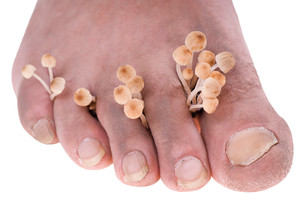 Many people are unaware that they may have toenail fungus, and this may often be a result of a lack of pain and discomfort. Common symptoms that are associated with this ailment may include the toenail becoming dry and brittle, the nail appearing yellow and thick, or a separation from the nail and the nail bed. It’s important to take proper care of your feet, which may possibly avoid this unsightly condition from developing. There are several ways to accomplish this, including wearing shoes that fit properly, trimming the toenails correctly, and wearing appropriate shoes in the shower and pool areas. If you are afflicted with toenail fungus, it’s suggested to speak with a podiatrist who can provide proper guidance for the best treatment options.
Many people are unaware that they may have toenail fungus, and this may often be a result of a lack of pain and discomfort. Common symptoms that are associated with this ailment may include the toenail becoming dry and brittle, the nail appearing yellow and thick, or a separation from the nail and the nail bed. It’s important to take proper care of your feet, which may possibly avoid this unsightly condition from developing. There are several ways to accomplish this, including wearing shoes that fit properly, trimming the toenails correctly, and wearing appropriate shoes in the shower and pool areas. If you are afflicted with toenail fungus, it’s suggested to speak with a podiatrist who can provide proper guidance for the best treatment options.
For more information about treatment, contact Dr. Kevin Davis of Davis Foot & Ankle Centers. Our doctor can provide the care you need to keep you pain-free and on your feet.
Toenail Fungus Treatment
Toenail fungus is a condition that affects many people and can be especially hard to get rid of. Fortunately, there are several methods to go about treating and avoiding it.
Antifungals & Deterrence
Oral antifungal medicine has been shown to be effective in many cases. It is important to consult with a podiatrist to determine the proper regiment for you, or potentially explore other options.
Applying foot powder on the feet and shoes helps keep the feet free of moisture and sweat.
Sandals or open toed shoes – Wearing these will allow air movement and help keep feet dry. They also expose your feet to light, which fungus cannot tolerate. Socks with moisture wicking material also help as well.
If you have any questions please feel free to contact our office located in Springfield, TN . We offer the newest diagnostic tools and technology to treat your foot and ankle needs.
Common Foot Ailments in Pregnant Women
 It’s common for pregnant women to complain about foot pain or swollen feet. Developing flat feet is equally as common, and this is typically a result of the excess weight that is gained from the developing fetus. Research has shown that this may affect a women’s center of gravity, which may alter overall posture. Despite the fact that most of these uncomfortable ailments may diminish after pregnancy, there are ways to minimize the discomfort they cause. These may include elevating the feet above the heart, which may aid in improving circulation in the early stages of pregnancy. It is beneficial to eat a well-balanced and healthy diet, which involves lower salt content. This can possibly eliminate excess fluid from accumulating. It’s also suggested to sleep on your side rather than on your back. Practicing gentle exercises may aid the decrease of fluid retention. Please consult with a podiatrist for additional information on how pregnancy affects your feet.
It’s common for pregnant women to complain about foot pain or swollen feet. Developing flat feet is equally as common, and this is typically a result of the excess weight that is gained from the developing fetus. Research has shown that this may affect a women’s center of gravity, which may alter overall posture. Despite the fact that most of these uncomfortable ailments may diminish after pregnancy, there are ways to minimize the discomfort they cause. These may include elevating the feet above the heart, which may aid in improving circulation in the early stages of pregnancy. It is beneficial to eat a well-balanced and healthy diet, which involves lower salt content. This can possibly eliminate excess fluid from accumulating. It’s also suggested to sleep on your side rather than on your back. Practicing gentle exercises may aid the decrease of fluid retention. Please consult with a podiatrist for additional information on how pregnancy affects your feet.
Pregnant women with swollen feet can be treated with a variety of different methods that are readily available. For more information about other cures for swollen feet during pregnancy, consult with Dr. Kevin Davis from Davis Foot & Ankle Centers. Our doctor will attend to all of your foot and ankle needs.
What Foot Problems Can Arise During Pregnancy?
One problem that can occur is overpronation, which occurs when the arch of the foot flattens and tends to roll inward. This can cause pain and discomfort in your heels while you’re walking or even just standing up, trying to support your baby.
Another problem is edema, or swelling in the extremities. This often affects the feet during pregnancy but tends to occur in the later stages.
How Can I Keep My Feet Healthy During Pregnancy?
- Wearing orthotics can provide extra support for the feet and help distribute weight evenly
- Minimize the amount of time spent walking barefoot
- Wear shoes with good arch support
- Wear shoes that allow for good circulation to the feet
- Elevate feet if you experience swelling
- Massage your feet
- Get regular, light exercise, such as walking, to promote blood circulation to the feet
If you have any questions please feel free to contact our office located in Springfield, TN . We offer the newest diagnostic and treatment technologies for all your foot and ankle needs.
A Common Cause of Foot Ulcers
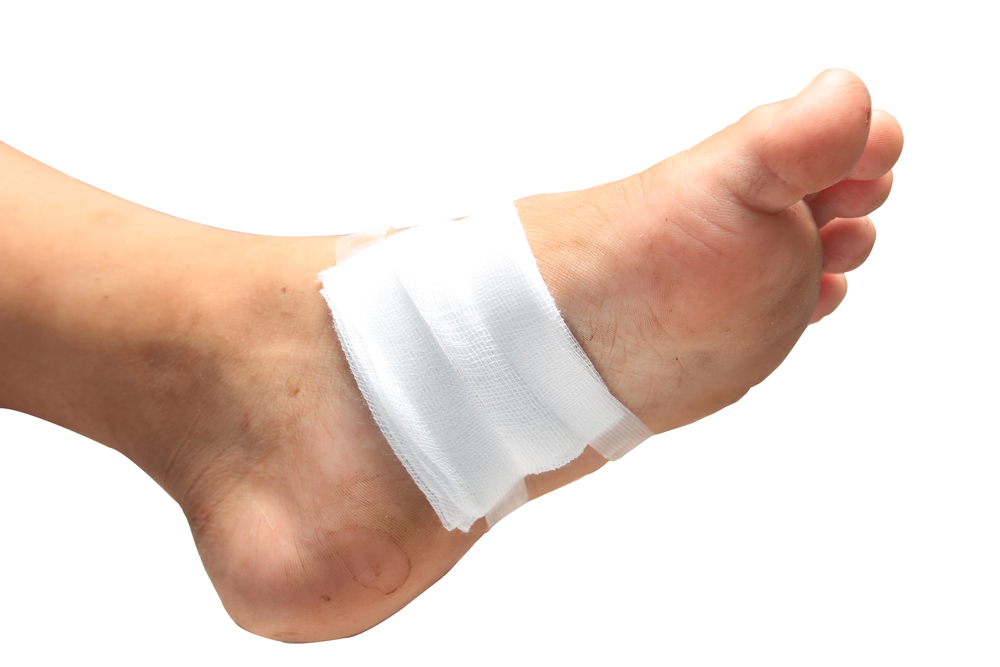 Foot ulcers may develop as a result of poorly managed diabetes. The skin will typically disintegrate, and the layers underneath will become exposed. Common areas on the foot where this condition may develop include the balls of the feet and under the big toe. In patients with severe foot ulcers, the bones of the feet may often become affected and may generally produce pain and discomfort. Research has shown the importance in keeping as much weight as possible off of your feet; this reportedly prevents further infections from developing. Wearing shoe inserts or diabetic shoes may be beneficial in providing additional protection the feet may need for proper healing. If you are afflicted with a foot ulcer, please consult with a podiatrist for information on correct treatment remedies.
Foot ulcers may develop as a result of poorly managed diabetes. The skin will typically disintegrate, and the layers underneath will become exposed. Common areas on the foot where this condition may develop include the balls of the feet and under the big toe. In patients with severe foot ulcers, the bones of the feet may often become affected and may generally produce pain and discomfort. Research has shown the importance in keeping as much weight as possible off of your feet; this reportedly prevents further infections from developing. Wearing shoe inserts or diabetic shoes may be beneficial in providing additional protection the feet may need for proper healing. If you are afflicted with a foot ulcer, please consult with a podiatrist for information on correct treatment remedies.
Wound care is an important part in dealing with diabetes. If you have diabetes and a foot wound or would like more information about wound care for diabetics, consult with Dr. Kevin Davis from Davis Foot & Ankle Centers. Our doctor will assess your condition and provide you with quality foot and ankle treatment.
What Is Wound Care?
Wound care is the practice of taking proper care of a wound. This can range from the smallest to the largest of wounds. While everyone can benefit from proper wound care, it is much more important for diabetics. Diabetics often suffer from poor blood circulation which causes wounds to heal much slower than they would in a non-diabetic.
What Is the Importance of Wound Care?
While it may not seem apparent with small ulcers on the foot, for diabetics, any size ulcer can become infected. Diabetics often also suffer from neuropathy, or nerve loss. This means they might not even feel when they have an ulcer on their foot. If the wound becomes severely infected, amputation may be necessary. Therefore, it is of the upmost importance to properly care for any and all foot wounds.
How to Care for Wounds
The best way to care for foot wounds is to prevent them. For diabetics, this means daily inspections of the feet for any signs of abnormalities or ulcers. It is also recommended to see a podiatrist several times a year for a foot inspection. If you do have an ulcer, run the wound under water to clear dirt from the wound; then apply antibiotic ointment to the wound and cover with a bandage. Bandages should be changed daily and keeping pressure off the wound is smart. It is advised to see a podiatrist, who can keep an eye on it.
If you have any questions, please feel free to contact our office located in Springfield, TN . We offer the newest diagnostic and treatment technologies for all your foot care needs.
Children and Plantar Warts
 If you find that your child complains of pain in the heel area of the foot, you may want to see if a plantar wart is present. A wart that develops and grows on the heel of the foot is referred to as a plantar wart. Despite the fact that it is known to be a harmless skin growth, it may generate severe pain and discomfort while walking. While many types of warts are visible on other parts of the body, a plantar wart grows inward as a result of the pressure the heel endures while walking, and may be difficult to notice. It is generally contagious, and may easily spread to other parts of the body. It’s suggested that your child refrains from sharing towels in addition to wearing protective shoes in public pools and shower areas. If your child develops a fever or if you notice liquid that drains from the wart, it’s advised to consult with a podiatrist as quickly as possible to learn about correct treatment options.
If you find that your child complains of pain in the heel area of the foot, you may want to see if a plantar wart is present. A wart that develops and grows on the heel of the foot is referred to as a plantar wart. Despite the fact that it is known to be a harmless skin growth, it may generate severe pain and discomfort while walking. While many types of warts are visible on other parts of the body, a plantar wart grows inward as a result of the pressure the heel endures while walking, and may be difficult to notice. It is generally contagious, and may easily spread to other parts of the body. It’s suggested that your child refrains from sharing towels in addition to wearing protective shoes in public pools and shower areas. If your child develops a fever or if you notice liquid that drains from the wart, it’s advised to consult with a podiatrist as quickly as possible to learn about correct treatment options.
Plantar warts can be very uncomfortable. If you need your feet checked, contact Dr. Kevin Davis from Davis Foot & Ankle Centers. Our doctor will assist you with all of your foot and ankle needs.
About Plantar Warts
Plantar warts are the result of HPV, or human papillomavirus, getting into open wounds on the feet. They are mostly found on the heels or balls of the feet.
While plantar warts are generally harmless, those experiencing excessive pain or those suffering from diabetes or a compromised immune system require immediate medical care. Plantar warts are easily diagnosed, usually through scraping off a bit of rough skin or by getting a biopsy.
Symptoms
- Lesions on the bottom of your feet, usually rough and grainy
- Hard or thick callused spots
- Wart seeds, which are small clotted blood vessels that look like little black spots
- Pain, discomfort, or tenderness of your feet when walking or standing
Treatment
- Freezing
- Electric tool removal
- Laser Treatment
- Topical Creams (prescription only)
- Over-the-counter medications
To help prevent developing plantar warts, avoid walking barefoot over abrasive surfaces that can cause cuts or wounds for HPV to get into. Avoiding direct contact with other warts, as well as not picking or rubbing existing warts, can help prevent the further spread of plantar warts. However, if you think you have developed plantar warts, speak to your podiatrist. He or she can diagnose the warts on your feet and recommend the appropriate treatment options.
If you have any questions please feel free to contact our office located in Springfield, TN . We offer the newest diagnostic and treatment technologies for all your foot and ankle needs.
Can High Heels Damage the Feet?
 Many women choose to wear high heels to accent the shape of the foot, despite the pain that may be endured. Additionally, other foot conditions may develop as a result of wearing this type of shoe, including blisters, deformities involving the toes, bunions, and strained calf muscles. Research has shown that when they are worn occasionally, it may give the feet the needed time to rest and heal. It may be beneficial to wear flat shoes or a more comfortable style that may include shoes that are wider, which may give the toes adequate room to move about in. Moderate relief may be found when gentle stretching exercises are performed. This may be accomplished by rolling your foot over a tennis ball, which will stretch the bottom of the foot, in addition to having your heel drop as you stand on a step, which will aid in stretching the heel. If you would like additional information about how high heels affect the feet, please consult with a podiatrist.
Many women choose to wear high heels to accent the shape of the foot, despite the pain that may be endured. Additionally, other foot conditions may develop as a result of wearing this type of shoe, including blisters, deformities involving the toes, bunions, and strained calf muscles. Research has shown that when they are worn occasionally, it may give the feet the needed time to rest and heal. It may be beneficial to wear flat shoes or a more comfortable style that may include shoes that are wider, which may give the toes adequate room to move about in. Moderate relief may be found when gentle stretching exercises are performed. This may be accomplished by rolling your foot over a tennis ball, which will stretch the bottom of the foot, in addition to having your heel drop as you stand on a step, which will aid in stretching the heel. If you would like additional information about how high heels affect the feet, please consult with a podiatrist.
High heels have a history of causing foot and ankle problems. If you have any concerns about your feet or ankles, contact Dr. Kevin Davis from Davis Foot & Ankle Centers. Our doctor can provide the care you need to keep you pain-free and on your feet.
Effects of High Heels on the Feet
High heels are popular shoes among women because of their many styles and societal appeal. Despite this, high heels can still cause many health problems if worn too frequently.
Which Parts of My Body Will Be Affected by High Heels?
- Ankle Joints
- Achilles Tendon – May shorten and stiffen with prolonged wear
- Balls of the Feet
- Knees – Heels cause the knees to bend constantly, creating stress on them
- Back – They decrease the spine’s ability to absorb shock, which may lead to back pain. The vertebrae of the lower back may compress.
What Kinds of Foot Problems Can Develop from Wearing High Heels?
- Corns
- Calluses
- Hammertoe
- Bunions
- Morton’s Neuroma
- Plantar Fasciitis
How Can I Still Wear High Heels and Maintain Foot Health?
If you want to wear high heeled shoes, make sure that you are not wearing them every day, as this will help prevent long term physical problems. Try wearing thicker heels as opposed to stilettos to distribute weight more evenly across the feet. Always make sure you are wearing the proper shoes for the right occasion, such as sneakers for exercising. If you walk to work, try carrying your heels with you and changing into them once you arrive at work. Adding inserts to your heels can help cushion your feet and absorb shock. Full foot inserts or metatarsal pads are available.
If you have any questions please feel free to contact our office located in Springfield, TN . We offer the newest diagnostic and treatment technologies for all your foot and ankle needs.
The Purpose of Shockwave Therapy
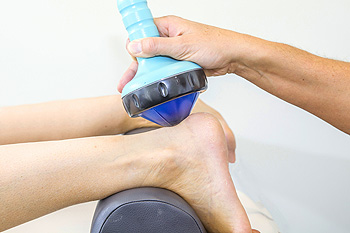 There is a technique that is referred to as extracorporeal shock wave therapy, which is also known as ESWT, that may aid in treating certain foot conditions such as plantar fasciitis. There are two types of shock wave treatments that may be used, and these are referred to as low-energy and high-energy treatments. Low-energy treatments are typically administered over a period of time and may produce mild discomfort. The opposite may be true of the latter, and is often performed in a single treatment, which may often require general anesthesia. The purpose of these treatments is to promote healing of the tissues and surrounding areas affected by the foot condition. Recent research has shown little effectiveness of these treatments and many patients may still have pain after treatment. It’s important to speak with a podiatrist if you would like additional information about shockwave therapy.
There is a technique that is referred to as extracorporeal shock wave therapy, which is also known as ESWT, that may aid in treating certain foot conditions such as plantar fasciitis. There are two types of shock wave treatments that may be used, and these are referred to as low-energy and high-energy treatments. Low-energy treatments are typically administered over a period of time and may produce mild discomfort. The opposite may be true of the latter, and is often performed in a single treatment, which may often require general anesthesia. The purpose of these treatments is to promote healing of the tissues and surrounding areas affected by the foot condition. Recent research has shown little effectiveness of these treatments and many patients may still have pain after treatment. It’s important to speak with a podiatrist if you would like additional information about shockwave therapy.
Shockwave therapy is a treatment commonly used to treat various injuries and conditions, particularly plantar fasciitis in the feet. To learn more, consult with Dr. Kevin Davis from Davis Foot & Ankle Centers. Our doctor can provide the care you need to keep you pain-free and on your feet.
Shockwave Therapy
Shockwave therapy is a new treatment option designed to treat bone conditions such as tennis elbow, shoulder pain, and others. Shockwave therapy uses high intensity sound waves that are directed to the affected tissues of the body with pinpoint accuracy. The effects are very beneficial, leading to a production of collagen fibers, eliminating inflammation.
Who Benefits from Shockwave?
Shockwave is recommended for patients suffering from heel pain and associated problems. Heel pain is a common condition which can be caused by obesity, overexertion, and spending a substantial amount of time on hard floors with your feet exposed and unsupported.
Fast and Easy
The therapy is actually a simple process that can leave patients feeling better the very next day. Shockwave therapy is not as dramatic as it sounds. It enables more blood flow to effected areas, addressing the source of the problem and allowing treatment to last for a long time.
Treatment & Recovery Time
Shockwave treatment will enable your feet to recover quickly. This is especially important since surgery is not required. It is cost effective and does not require the use of anesthesia. This treatment is a better option to surgery, since it is proven safe.
If you have any questions, please feel free to contact our office located in Springfield, TN . We offer the newest diagnostic and treatment technologies for all your foot and ankle needs.
